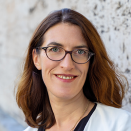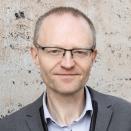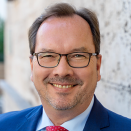What effects will the attacks have on French domestic and foreign policy?
Claire Demesmay: Right now, there is a strong sense across party lines that the country is at war. Many commentators are drawing parallels with the Algerian War of the 1950s and early 1960s, when the French experienced numerous attacks and Charles de Gaulle proclaimed a state of emergency. Another frequent comparison is to the series of terrorist attacks carried out in Paris in 1995 by the Islamist Algerian group GIA. The policy focus accordingly is to vastly increase the number of precautionary measures, and this necessarily means restricting certain freedoms. For example, the 12-day state of emergency imposed by President François Hollande, which he now wants to extend to three months, allows for round-the-clock emergency searches, placement of suspects under house arrest, and the closure of certain mosques that are deemed a threat to domestic security. Theoretically this could also include censorship, though this has thus far been ruled out.
In contrast to the reaction to the attacks of January 2015, we are starting to see the first cracks appear in the declarations “national unity.” The conservative camp is already criticizing Hollande’s approach to terrorism as “lax” and calling for much harder measures. Thus Nicolas Sarkozy is calling for the house arrest of all of the 11,000 suspects currently under surveillance by French authorities for radicalization. Certainly the success of the right-wing Front National party (FN), which has been stirring up fear of Islam for decades, is contributing to this distinct rightward swing. It was already predicted before the attacks that FN leader Marine Le Pen would win the regional elections on December 6 and 13. This prognosis is in no way being changed by the terrorist events. Quite the contrary. While most political parties have temporarily stopped campaigning, politicians from certain parties, faced with the FN’s favorable prospects, are being tempted to use the current situation to their advantage. It could seriously damage social cohesion if politicians start overbidding themselves in this way. And it would mean conceding partial victory to the terrorists, whose goal is to polarize and divide Western society.
How will these attacks affect European refugee policy?
Henning Riecke: A few critics of German refugee policy are now incorporating the Paris terrorist attacks into their arguments. They say that by bringing refugees into our society, we are importing Jihadists, too. I hardly need to point out how manipulative and dangerous this line of argument is. Even when concerns cannot be dismissed out of hand, it is still the case that most of the refugees are fleeing violence, destruction, repression, or utter economic hopelessness. Furthermore, if refugees are treated in an unfriendly or disrespectful way they are potentially more susceptible to European Salafists and other extremists. This is just one argument for the orderly, respectful treatment of refugees. At the same time, intelligence agencies need to do much more to prevent extremist recruiting.
Sarah Hartmann: I agree, and I would also warn urgently against mixing the two topics, though it is something we are already starting to see on a populist level. It is absurd to think that terrorists would favor the extremely difficult, dangerous route over the Mediterranean or through the Balkan states to arrive in Europe. Earlier attacks in Europe have already shown that the perpetrators are often European citizens who have grown up here. On no account should be fall prey to the same the logic as the perpetrators, who aim to open a rift between “the Muslims” on one side and “the West” on the other.
Gereon Schuch: Yes, there is a danger that populists will consciously mix the refugee crisis up with the analysis of the root causes of the Paris attacks. But they are two very different things. A large proportion of the refugees currently coming to Europe are Muslim, but they have nothing whatsoever to do with Islamist terrorists – except in those cases where they are fleeing them. Populist calls for sealing off borders and tightening admission restrictions as a reaction to the Paris attacks suggest that one can fight international terrorism through border controls and stricter asylum laws. This is dangerous, and it plays right into the hands of the terrorists, who want to fuel fears within society at large.
What responses are we seeing in the Middle East?
Sarah Hartmann: The countries of the Middle East have struggled with the problem of terrorism for many years. The people there know all too well the everyday fear of random attacks, which for Europeans has remained abstract and relatively far removed. In the last weeks alone we saw the explosions in Beirut of November 12, which left more than forty dead, and two attacks in Bagdad, resulting in more than 26 deaths.
Of course the news of the Paris attacks has given rise to great consternation and sadness in the Middle East and North Africa. But several of the demonstrations of solidarity and mourning have also explicitly referred to those killed in the other attacks of the past days and months as well – in other words, not only to the victims in Paris but also those in Beirut, Syria, Iraq, Palestinian communities, Egypt, and Yemen. The question has been raised of why the many innocent victims in these countries did not receive the same attention around the world as their French counterparts. The argument that a sort of double standard applies to those who died in the West is therefore finding resonance.
Governments in the MENA states, along with many Islamic scholars all around the world, have strongly condemned the attacks on Paris. In doing so, leaders such as Egyptian President Abdel-Fattah el-Sisi consider themselves justified in warning about Islamist terrorism and in their efforts to fight it. They are calling for stronger engagement on the part of the West and coordinated international measures. Europe’s governments are once again facing the difficult question of how far to go in cooperating with rulers who they criticize, on the one hand, for their human rights abuses but who they must rely on in the fight against ISIS.
How are the attacks affecting the coalition against ISIS? Will we now see more cooperation with Russia on Syria?
Stefan Meister: Now, on top of the enormous refugee problem, the attacks on Paris make the need to end the war in Syria even more urgent. International talks in Vienna were the first serious attempts to involve regional and international actors and states in the negotiations in order to create, with the discussions of road map, a transition in Syria and, in doing so, end the war. Russian leaders have managed to make themselves actors in this conflict through their military interventions on behalf of Syrian President Bashar al-Assad, which means they must participate in the peace process as well. Their bombing campaigns in Syria are forcing the US to talk with them. At the same time, Moscow’s main target is not IS but the Syrian opposition, with the goal of helping Assad. The Russian leadership differs very little from that of Turkey or the US in one crucial way: so far, nobody is fighting IS with the seriousness that is required. Instead, they are merely following their own individual interests while keeping their losses as low as possible. Right now Moscow is openly supporting Assad while trying to strengthen Iran’s role in the negotiations.
The terrorist attacks in Paris could make deteriorating relations between Russia and the West in the context of the Ukraine crisis appear somewhat relative and will probably lead to Brussels and Washington approaching Moscow with a greater willingness to work together. At the same time it is important to avoid false solutions. Assad is part of the problem, not the solution. It is his bombs that have hit the majority of Syrian victims, and he has them on his conscience. Russia’s intervention in the war has led to yet more victims and has, in turn, only increased the flood of refugees. Nonetheless, there are common interests between Moscow and the West in the fight against terrorism. It is worth seeking out dialogue and even exploring potential areas of cooperation, but this should not distract attention away from other conflicts, particularly in Ukraine.
Henning Riecke: France now considers itself to be at war with the so-called Islamic State. This is understandable, as are its actions in Syria. Ultimately the French president needs to show that he is capable of taking action. Air attacks alone may weaken IS’s position as an actor in the civil war in Syria, which is a good thing, but it will probably be impossible to avoid involving ground troops if we want to see an end to the fighting, secure territory, and give other forces in the civil war an opportunity to establish political order. It is likely that the US and France will first attempt to manage this with special forces while keeping a relatively low profile. President Hollande is asking the EU’s other states to provide military assistance. There is in fact an article on assistance included in the EU treaties. At this point, however, the potential outlines of an EU mission, and the question of which member states would in fact participate, remain completely open.
In my opinion, however, this alone is not enough for winning the struggle against ISIS. The terrorist group is also active in other areas of conflict and is capable of carrying terror to Europe as well. The most important thing, therefore, is to embed this struggle in a larger package of measures. It is extremely important to get a political process underway that will allow a new order in Syria to establish itself. Part of this involves providing military protection for this process. I would trust that in this case, European security organizations would necessarily be involved.
How do you respond to the argument that the attacks were the results of Western military interventions in Irak and Afghanistan?
Henning Rieke: This oversimplified explanation involves a clouded view of reality. Extremism is on the rise in societies marked by corruption, exploitation, repression, hopelessness among the youth, and ethnic conflicts, all of which heighten the potential for violence. Difficulties relating to globalization and modernity are probably contributing factors here as well. This complex combination is to be found in many parts of the Arab [and Muslim] world today. Certainly it should not be forgotten by those states in the Middle East that are apparently stable but must nonetheless face similar problems. The lack of prospects, this loss of a clear moral compass, is also present in Europe. The interventions in Afghanistan, Iraq, and Libya have created points of reference and opened up a space for extremist groups like ISIS in war zones. The problem here has less to do with intervention per se than with the serious mistakes and inappropriate compromises that were made in the effort to bring political stability to areas of conflict.




